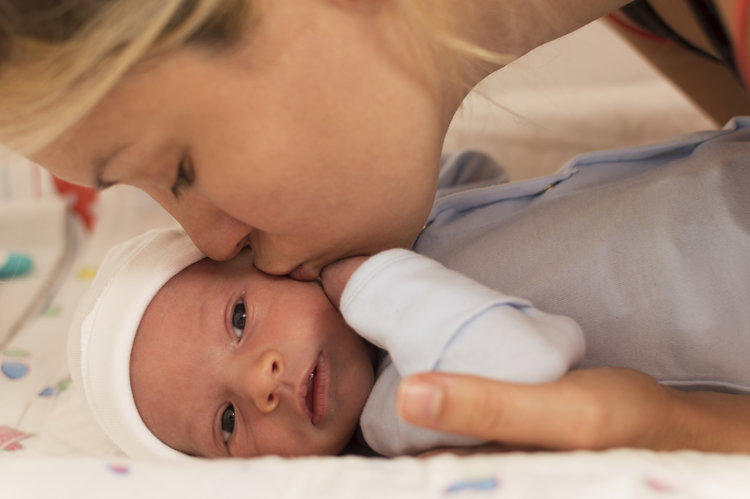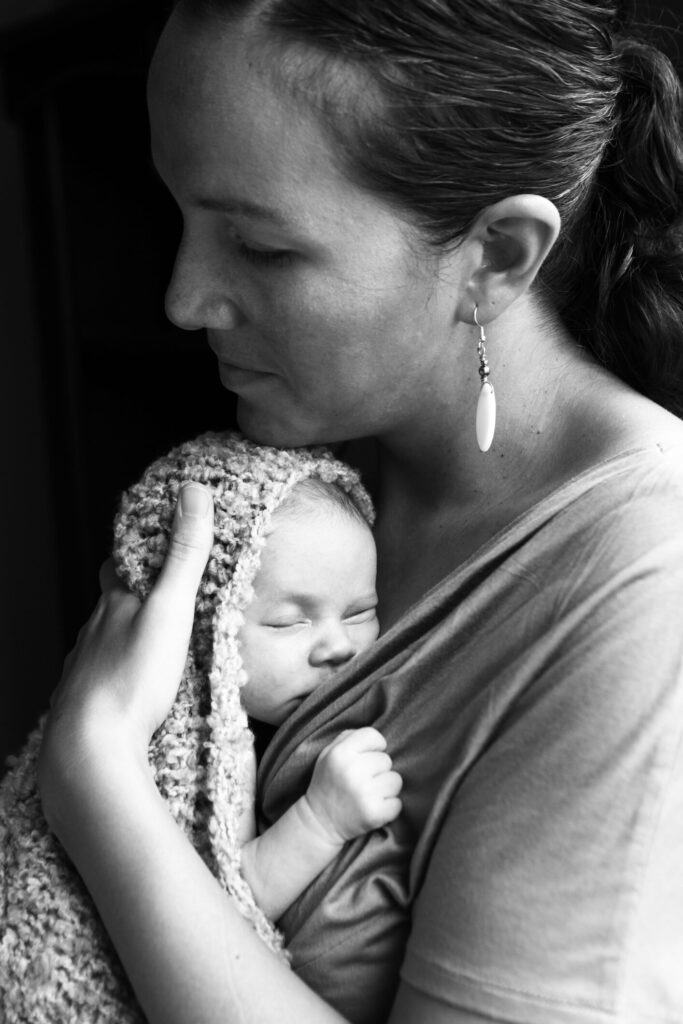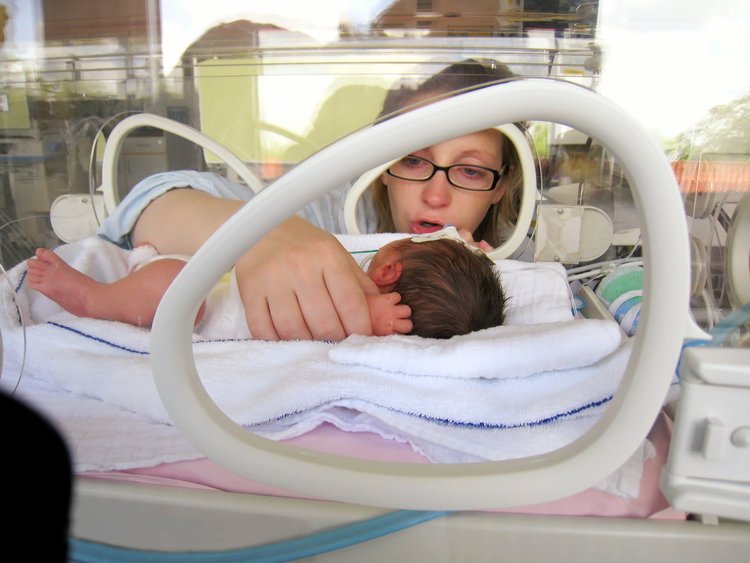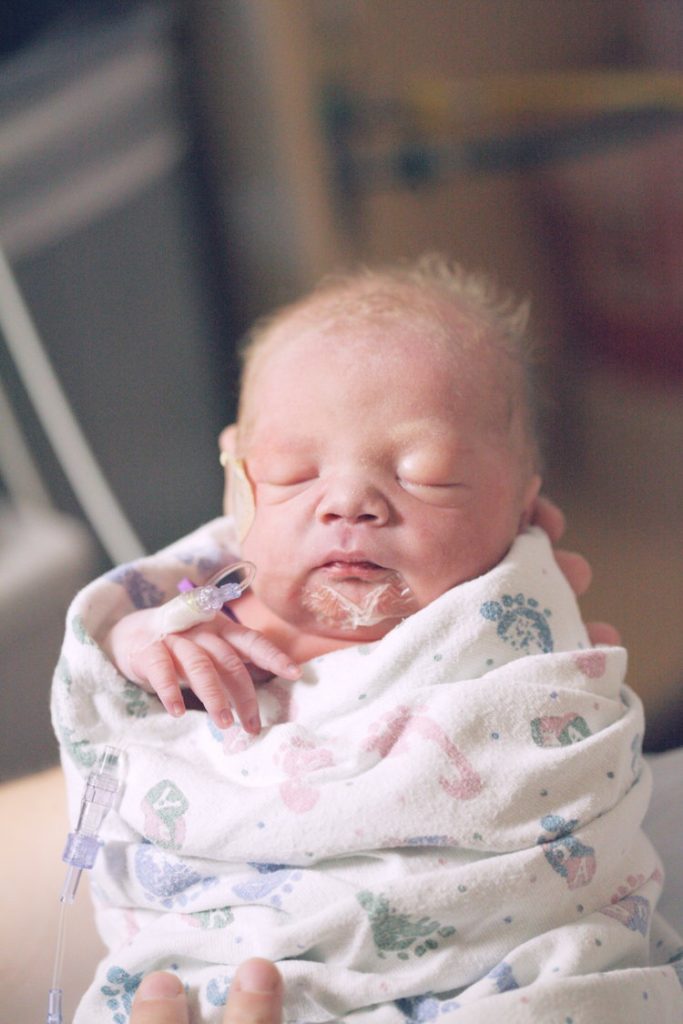
Taking your baby home from the birthing facility is an exciting and joyful event. This transition can also cause anxiety and feelings of nervousness, especially for parents of babies that have needed extra care in the Neonatal Intensive Care Unit (NICU). Getting settled in these situations, whether your baby was in the hospital for a few days or a few months, can be good and also challenging and stressful. Your baby may be discharged with special needs, such as medications, particular instructions for care, monitors, and follow up appointments.
You may have neglected your own physical and mental health while baby was in the hospital. All of this can feel overwhelming, especially while you are trying to recover from giving birth, learning your baby’s cues, figuring out a new rhythm and managing other aspects of life, like other children, household responsibilities, and paying bills. Accepting help from family and friends can help make the transition easier. They can make meals, run errands, clean, or babysit older children, so you can focus on taking care of the baby and yourself. It is GOOD to ask for help.
Being prepared for baby’s arrival home can also make the transition smoother. This would be a good time to look at the postpartum plan and see what has changed and how you still need and want help. Here are a few additional tips on preparing for discharge (from March of Dimes):
- Be as involved as you can providing your baby’s care during hospitalization.
- If possible, take advantage of rooming-in overnight in the hospital before discharge. This is when you spend the night overnight in the hospital in the same room as your infant. This arrangement allows you to lead your baby’s care, with nursing staff nearby in case you have questions or need help.
- Take advantage of resources the hospital offers (for example, social workers) and make a list of questions for your baby’s medical team before discharge. Accepting the support that is available is a sign of strength. The NICU can be traumatizing and there are people and tools to ease that pain for you.
- Organize and prepare at home by getting your baby’s space ready, making sure you have all needed equipment and/or prescriptions
- Talk to your partner and family about discharge day. Do you want any family or friends to be present when you arrive home? Or would you prefer to contact them when you are ready for visitors?
Parents Mental Health in the NICU
Most families find that having a baby in the NICU is a stressful event. Being in the NICU is probably not how you pictured your newborn’s first days. Events surrounding the birth may have been traumatic or overwhelming, and you may not have had time to process them. The NICU can also be scary and confusing, with lots of monitors, medical equipment, alarms, and a variety of staff caring for your child. Many parents experience a range of emotions in the hospital and after their baby comes home, including, stress, anxiety, depression, and guilt. In fact, one study found that 30% of mothers of babies who required NICU care had post-traumatic stress disorder at one month postpartum. Another study found some common themes among parents who have had NICU experiences:
- The NICU can be isolating. It can feel like a whole other world from the town or even other floors of the hospital. Feeling disconnected, unseen, and upset can also continue once baby comes home. Mothers may feel concerned about germs and worrying about taking the baby out in public or inviting people over because of the fear of the baby getting sick. These concerns may be valid. It is a hard road to navigate.
- The hospital is a very controlled environment, with lots of professionals around monitoring and caring for the baby, which can cause a lot of anxiety once baby comes home and no longer has that level of oversight. Trust yourself and also learn from others that have experience in your circumstances, including health care professionals and other parents.
- Mothers who had NICU experiences also may not feel connected to other mothers who had healthy babies in the immediate postpartum period.
- Finally, mothers may feel a lack of both professional and social support.
It doesn’t have to be this way! Ask to talk with a social worker or care manager in the NICU and see if they can help you find a professional who can guide you through this time. You can also ask your health care provider if he/she can refer you to a professional who can help. While this can be hard, families are strong and with support you can get through this experience closer and stronger than ever before.
NICU family support and resources:






